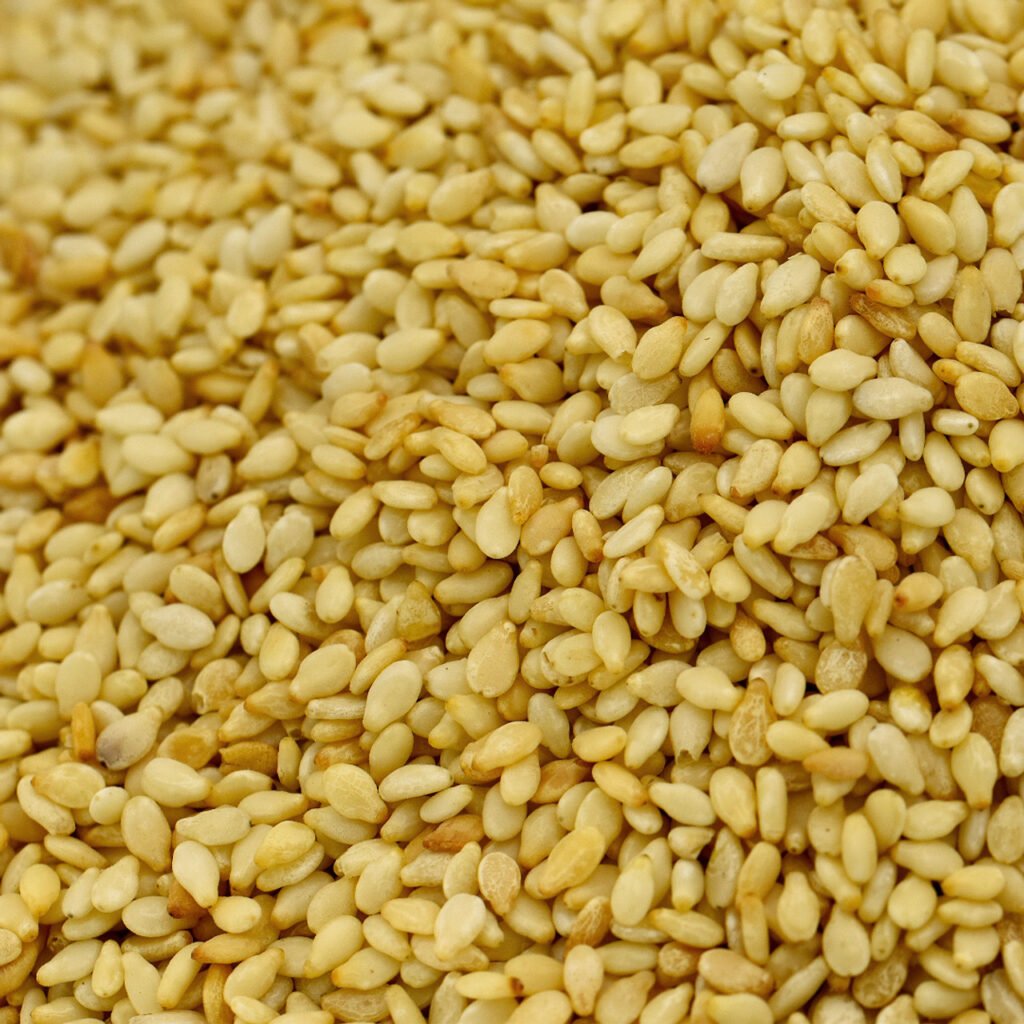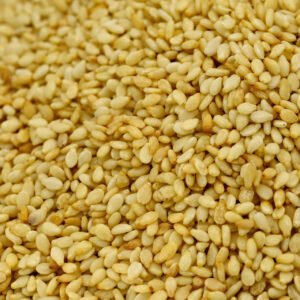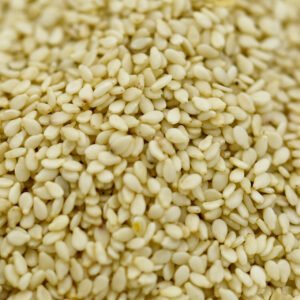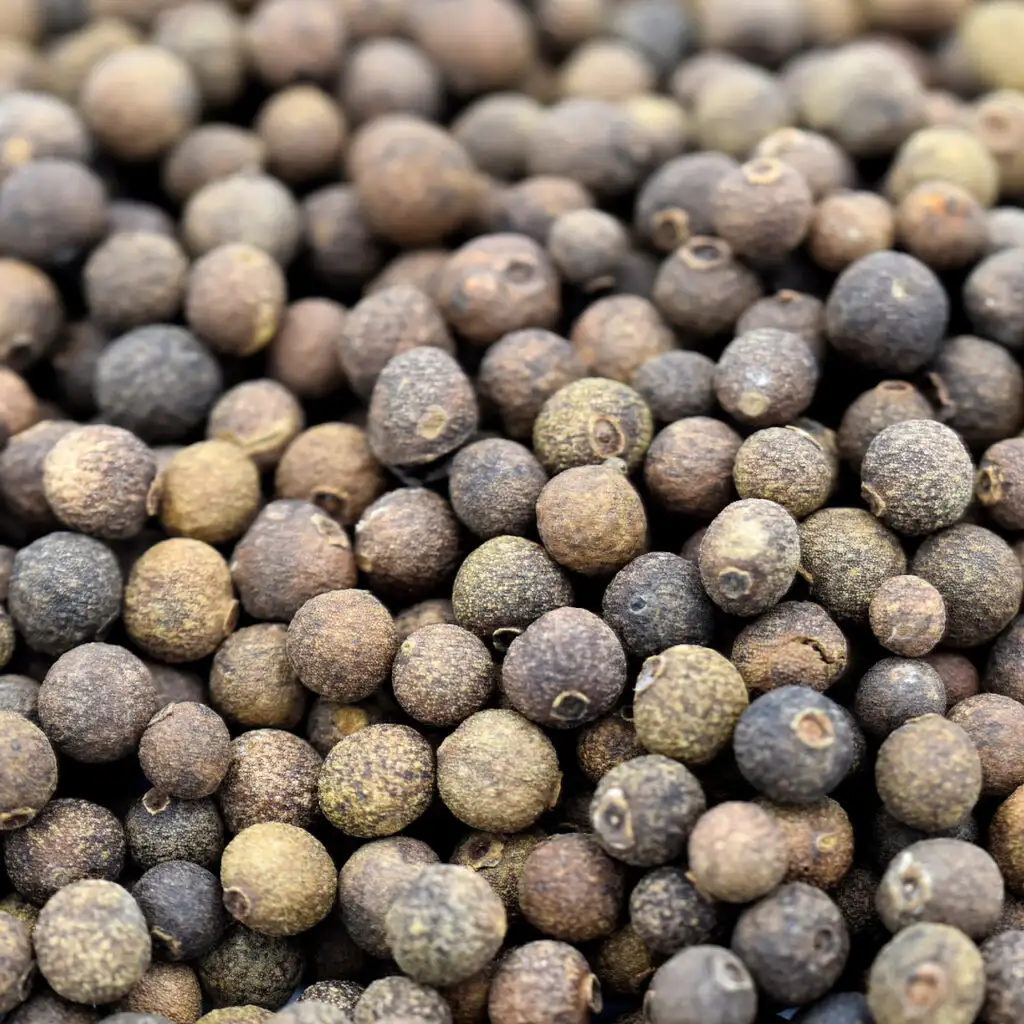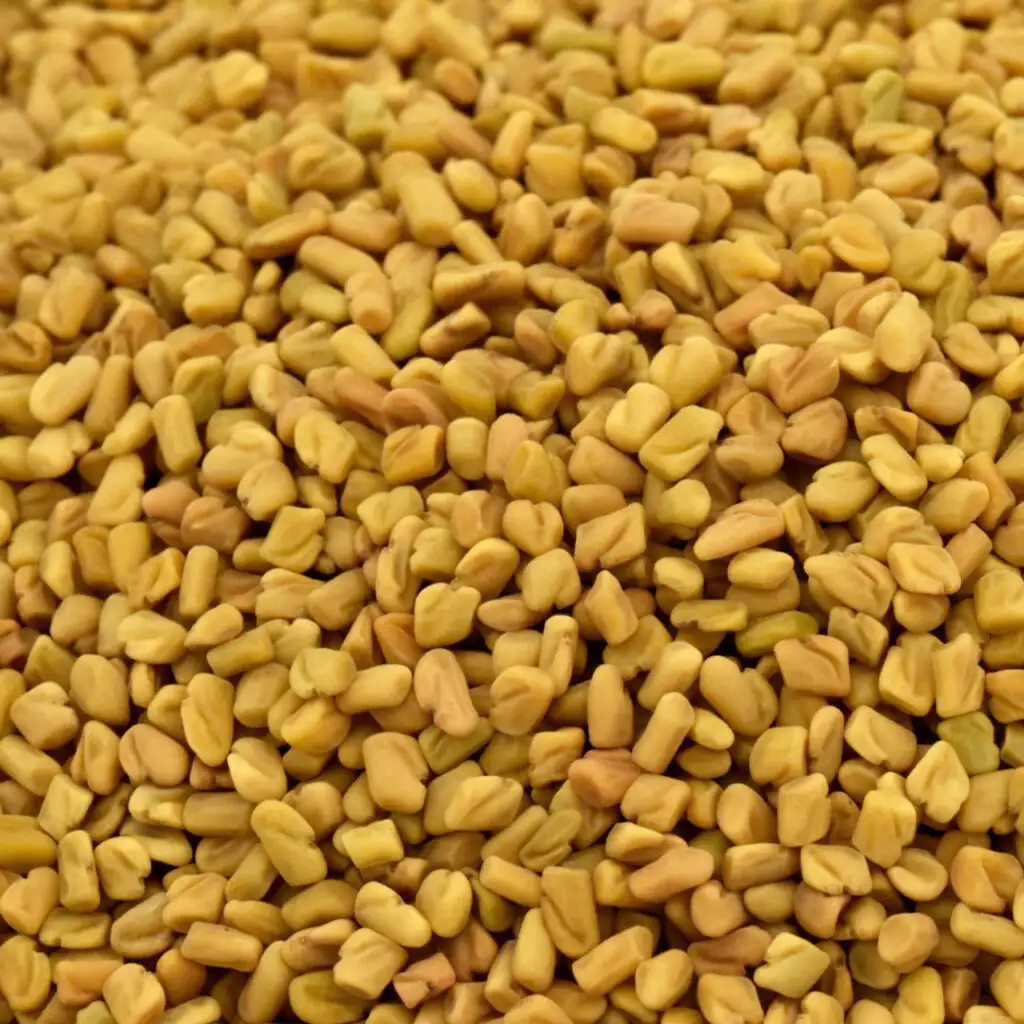Sesame Seed
Sesame seeds have been used for thousands of years in different cultures, not only as a food source but also for their medicinal properties. They are known for their rich nutty flavor and high oil content, making them a popular ingredient in various cuisines. However, sesame seeds also offer numerous health benefits that many people may not be aware of. In this article, we will explore some of the benefits of sesame seeds.
Introduction
Sesame seeds are small, oval-shaped seeds that come from the Sesamum indicum plant. They have a crunchy texture and a delicious, nutty flavor that makes them a versatile ingredient in many dishes. Sesame seeds can be eaten raw or roasted, and they are commonly used to make tahini paste, which is a staple ingredient in Middle Eastern cuisine. They are also used as a topping for bread, crackers, and other baked goods.
Nutritional Value of Sesame Seeds
Sesame seeds are a nutrient-dense food, rich in protein, healthy fats, fiber, vitamins, and minerals. A 100-gram serving of sesame seeds provides the following nutrients:
- Protein: 17 grams
- Fiber: 12 grams
- Calcium: 975 milligrams
- Iron: 14.6 milligrams
- Magnesium: 351 milligrams
- Phosphorus: 629 milligrams
- Potassium: 468 milligrams
- Zinc: 7.8 milligrams
- Vitamin B6: 0.8 milligrams
Health Benefits of Sesame Seeds
Rich in Antioxidants
Sesame seeds are an excellent source of antioxidants, including lignans, phytosterols, and tocopherols. These compounds help protect the body against oxidative stress, which can lead to chronic diseases such as cancer, diabetes, and heart disease.
Promotes Heart Health
Sesame seeds are high in monounsaturated and polyunsaturated fats, which can help lower cholesterol levels and reduce the risk of heart disease. They are also a good source of magnesium, which is essential for maintaining a healthy heart rhythm.
Helps Manage Blood Sugar Levels
Sesame seeds contain lignans and fiber, which can help regulate blood sugar levels and reduce the risk of diabetes. They also have a low glycemic index, which means they don’t cause a rapid spike in blood sugar levels.
Supports Bone Health
Sesame seeds are an excellent source of calcium, which is essential for building and maintaining strong bones. They also contain other minerals such as magnesium, phosphorus, and zinc, which are important for bone health.
Aids in Digestion
Sesame seeds are rich in fiber, which can help promote regular bowel movements and prevent constipation. They also contain compounds that have a soothing effect on the digestive system, helping to reduce inflammation and irritation.
Boosts Immunity
Sesame seeds are rich in zinc, which is essential for a healthy immune system. Zinc helps the body produce immune cells and antibodies that fight off infections and diseases.
Benefits for Skin and Hair
Sesame seeds are rich in vitamins and minerals that are essential for healthy skin and hair
May Help Prevent Cancer
Sesame seeds are a rich source of lignans, which are compounds that have been shown to have anti-cancer properties. Studies have found that lignans may help prevent the growth and spread of certain types of cancer cells, including breast, colon, and lung cancer.
How to Incorporate Sesame Seeds into Your Diet
There are many ways to incorporate sesame seeds into your diet. You can add them to your breakfast cereal, smoothies, or yogurt. They can also be used as a topping for salads, stir-fries, and roasted vegetables. Sesame seeds can be used to make homemade hummus, tahini sauce, or salad dressings. You can also snack on sesame seeds by themselves or mixed with nuts and dried fruits.
Precautions When Consuming Sesame Seeds
Sesame seeds are generally safe for most people to consume. However, some individuals may be allergic to sesame seeds, which can cause symptoms such as hives, swelling, and difficulty breathing. If you have a sesame seed allergy, it’s important to avoid consuming sesame seeds and products that contain sesame seeds.
Conclusion
Sesame seeds also contain oxalates, which can contribute to the formation of kidney stones in some individuals. If you have a history of kidney stones or are at risk of developing them, it’s important to consume sesame seeds in moderation and talk to your doctor about whether they are safe for you to consume.
- Are sesame seeds good for weight loss?
- Yes, sesame seeds are a good food to incorporate into a weight loss diet. They are rich in protein and fiber, which can help you feel full and satisfied for longer.
- Can sesame seeds help lower cholesterol levels?
- Yes, sesame seeds are high in healthy fats that can help lower cholesterol levels and reduce the risk of heart disease.
- Are there any side effects of consuming sesame seeds?
- Sesame seeds are generally safe for most people to consume. However, some individuals may be allergic to sesame seeds, and they may also contribute to the formation of kidney stones in some individuals.
- How much sesame seeds should I consume in a day?
- It’s recommended to consume sesame seeds in moderation as part of a balanced diet. A serving size of sesame seeds is typically 1-2 tablespoons per day.
- Are sesame seeds good for skin and hair?
- Yes, sesame seeds are rich in vitamins and minerals that are essential for healthy skin and hair, including zinc, vitamin E, and B vitamins.
Lorem ipsum dolor sit amet, consectetur adipiscing elit. Ut elit tellus, luctus nec ullamcorper mattis, pulvinar dapibus leo.
Lorem ipsum dolor sit amet, consectetur adipiscing elit. Ut elit tellus, luctus nec ullamcorper mattis, pulvinar dapibus leo.

